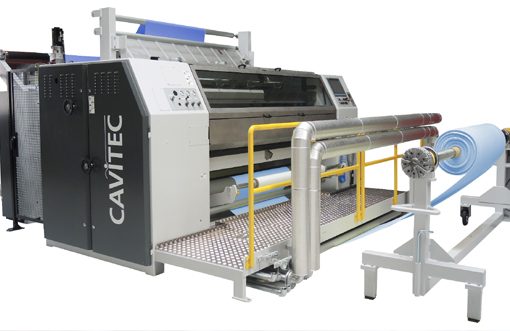Talent management underpins the success of being compatible in the growing market

AN APPROACH FOR SUSTAINABILITY
Employees those are talented, looks for a future, not just a job. Therefore, talent management becomes not only providing a job to the suitable but compelling creating an environment that shows the path of successful future.
Advances in technology is enabling companies to reduce inventories, create more efficient supply chains, customize products, and reduce R&D costs & time to market. It is no wonder that we all see technological advances as the mega trend and significantly affecting business more than ever.
To support new technologies and innovation, attracting right people with right knowledge is a necessity, not an option. The right hires with the right skills and motivation generate the greatest value for the company. When hired skilled, passionate professionals who are a good fit for the companies, guarantees elevated productivity, enhanced innovation and an edge in the market. Challenges are many fold, the retention of talent depends on several factors: Developing a good culture, transparency, equity, empowerment, creating opportunities to grow within the company
and ensuring engagement. To meet the challenges requires lot of skill and a growth mindset.
TALENT ACQUISITION VS RECRUITMENT
Most people find it challenging to draw a clear difference between talent acquisition Vs recruitment. After all, both having the same goal to place people in open vacancies. Despite the overlaps, the difference is sharper than people usually assume.
The recruitment process is reactive and linear, talent acquisition is proactive, cyclical and strategic. Recruitment focuses on fulfilling a current need, while talent acquisition focuses on creating a talent pipeline in anticipation of future needs & sustainability.
For that, need to develop a team along with strategy that allows to identify talents so to have a crucial role in the future success of the company.
THE IMPORTANCE OF GOOD CULTURE
Culture is a key advantage when it comes to attracting talent and outperforming the competition. Culture affects all aspects of the business, from contract terms to employee benefits. When workplace culture aligns with employees, they’re likely to feel more comfortable, supportive, and valued. Companies that prioritize culture, come out stronger provided competitiveness in favor of continuous learning remain. It is to say, instead of proving themselves, employees ought to be encouraged to improve themselves.

QUALITIES OF GOOD CULTURE
Every company’s culture is different and it’s important to retain what makes company unique. However, the cultures of high-performing company consistently reflect certain qualities that should be cultivated:
Alignment comes when the company’s objectives and its employees’ motivations are all pulling in the same direction.
Appreciation can take many forms: a note of thanks, or a promotion. A culture of appreciation is one in which all team members frequently provide recognition and thanks for the contributions of others.
Trust is vital to a company. With a culture of trust, team members can express themselves and rely on others to try something new. Though honesty and transparency are critical components but trust can boost the qualities to achieve.
Resilience is a key quality in highly dynamic environments where change is continuous. A resilient culture will teach leaders to watch for and respond to change with ease.
Teamwork encompasses collaboration, communication, and respect between team members. When everyone on the team supports each other, employees will get more done and feel happier while doing it.
Innovation leads organizations to get the most out of available technologies, resources, and markets. A culture of innovation means applying creative thinking to all aspects of business.
EMPLOYEE ENGAGEMENT RESULTING IN RETENTION AND IMPROVED PERFORMANCE
Employee engagement and sense of belonging is a psychological state within which an employee connects and identifies at a personal level with their job &company, resulting in retention and improved performance. Employee engagement is the keen emotional and intellectual connection that an employee has for the job. The major requirements of employee engagement include: the job itself, opportunities, quality of life, HR policies, the quality of
the supervision, skill utilization and employees know what is expected from them.
EMPLOYEE EMPOWERMENT
Empowerment means delegation of authority and responsibility from top to bottom employee. Taking part in management and decision making may be a sort of empowerment. Empowerment needs commitment to train employee and provide job requirements.
EMPLOYEES TO KNOW THAT THEIR FEEDBACK MATTERS
Many companies often ignore the requirement of employee annual engagement & feedback analysis. Moreover, due to reluctancy in maintaining the Chain of Command, a direct result of leadership is not seen and ultimately resulting too late to make a difference.

EMPLOYEES TO KNOW THAT THEY ARE FIT IN TO THE SELF-ESTEEM CULTURE
Company’s culture ultimately shapes employee perceptions, behaviors and understanding. Culture sets the context for everything company does. Conversely, an ineffective culture in the long run can bring down the company and its leadership.
It is reasonable to expect that fresher sunder the banner of talent management have a certain level of literacy and computational skills but they may not have the training to fill a particular job. They can only be improved with practical experiences and on-the-job training. When hiring, companies need to take into account not only current skills, but the ability to learn and evolve in today’s fast changing conditions. The role of companies in helping employees develop and maintain needed skills through continuous holistic training programs is foremost important in an age of rapid technological change.





Comment here